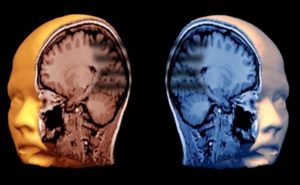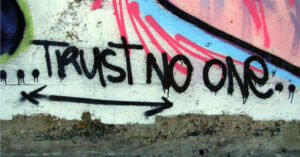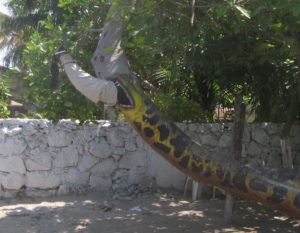Some cheaters assume that when their children are grown, the effects of their affair will be minimal. You know and I know that this kind of thinking is mistaken.
When you hear this kind of statement coming from the cheater, you know that trouble is ahead in several areas. Hearing such a statement should set off alarms.
First, assuming that adult children will hurt less than young children or be damaged less shows that they don’t know much about adult children. Adult children will be hurt by the affair differently than a younger child. Although they hurt differently, they still hurt.
The hurt of adult children has its own form of torment. They see what’s going on and can’t deny it. They understand the significance of the cheater’s actions.
They make their own decisions and assessment of events. No matter how the cheater spins things, they can’t control adult children. The best the cheater can do is damage control.
Having to see your own parent cheat carries with it more betrayal than what happens with a younger child. The youth experiences more the disappointment. Both will experience rejection. Rejection hurts, no matter how old you are when it happens.
The adult child also faces a twisted dynamic of seeing their parent become irresponsible. This puts them in the role of being the parent, while the parent behaves like an out of control child.
This twisted relationship dynamic is unhealthy for parent-child relationships. When the adult child catches their parent ‘making out’ with the latest fling, it creates a sense of ‘unreal awkwardness’.
Yes, the adult child is understanding, but that doesn’t mean that they’re approving what is happening.
One of the problems with the ‘unreal awkwardness’ occurs when the parent attempts resuming the parental role with their adult child after already demonstrating their irresponsibility. When the twisted relationship is put under that kind of pressure, there’s a risk of situations ‘blowing up’ in unpredictable and unhealthy ways.
When the cheater puts their child into the ‘unreal awkwardness’ scenarios, the damage can’t be ‘undone’. The cheating parent loses influence, power and respect.
The adult child already knows that the cheater is selfish. The ‘unreal awkwardness’ only serves to validate their selfishness and self-centeredness.
The adult child knows that the cheater doesn’t have the family’s best interest at heart, nor are they considering the impact of their actions on the family. The adult child knows that.
It’s sad when the cheater attempts regaining the respect of being a ‘loving, caring, selfless parent’ , when the child knows that that is not the case. The cheater may use days like Father’s Day or Mother’s Day as excuses to play the role of the loving, caring, selfless parent who is worthy of respect and honor. The adult child sees through such ploys and realizes their cheating parent is making a mockery of parenthood.
For more on Children and Affairs, you’ll want to purchase my downloadable course, ‘Affair Recovery Workshop‘ which contains a section on children and affairs.
Affairs impact children. Whether or not you see the damage, it’s there.
Best Regards,
Jeff


















4 Responses
I.m a cheater my friend is a cheater. Each of us adult children. We hurt them and get that. Now i can justify and rationalize why i cheated after 28 years of marriage and why she cheated after 12 years of marriage. I definitely did things against social norms and certainly against my own values. I suppose that’s the true meaning of cognitive dissonance. With that being said, in my opinion your use of the word “irresponsible” is used rather loosely. In my case the irresponsible act was staying in a highly toxic relationship for 20 years. Yes, I agree that the way I left was wrong. But, my adult children should to som extent mind their own business. I dont need a parent, I wish I had their support, but I am happier now then ever. I am willing to remain open minded and listen to any feedback you may have. Truth being told My kids are pissed at me. Haven’t spoke in a year now.
John,
Thank you for sharing your situation. You have definitely found the meaning of cognitive dissonance in terms of doing things against norms that you adhere to. Recognizing that is an achievement that some people never attain.
I assume that your reference to ‘irresponsible’ is the one in the sentence, “The adult child also faces a twisted dynamic of seeing their parent become irresponsible.” My word choice was based on how adult children view an affair as an avoidance of their parents responsibilities. They expect a parent to stay married to their spouse, honor their vows and fulfill the duties a parent has to their children and grandchildren. Affairs have way of disrupting those dynamics. I chose that word, since by definition, the term means ‘not liable or answerable for the consequences’. From a child’s perspective, they often view the cheating parent as trying to avoid the consequences of what they did.
In talking to your children, you may have to validate their pain before they open up to you. Bear in mind that validating their pain, does not mean that they are right and you are wrong. What it does mean is that their feelings are real and there is a reason for them. You may not agree with their feelings, but you are acknowledging their pain. It is like saying “I know you are hurting, and that you have a reason for that hurt”.
If resentments have built up, it may take longer and require asking for forgiveness for your part in what happened to their family.
A key question to consider is “What is their business?” Each family has to decide how much involvement they want to have in each other’s lives. That involvement brings support with it, but also the sensitivity to rejection. If you want their support and involvement, you will have to loosen the boundaries, if you want them totally out of your business, you loose out on the support. This is an area where you have to count the cost of what is more important to you, privacy or intimacy.
I recognize the damage I did. I did something horrible and then I made a decision, to tell my family and to leave my husband—that part was more selfish than horrible.
But this post, which my daughter sent me, makes it sound like it’s hopeless. You did the damage and don’t expect to have a relationship with your kids anymore.
I accept that I hurt everyone just so I could make my life better. I know a better woman would not have done that.
Isn’t there a way to have a loving relationship after a horrible mistake and lousy behavior?
B Gonzalez,
Thank you for writing. Your question “Isn’t there a way to have a loving relationship after a horrible mistake and lousy behavior?” is painful to hear.
I believe there is a way to have a loving relationship after a horrible mistake and lousy behavior. That’s a major reason I help couples recover from affairs. I believe the couple can recover and the family can recover.
Recovery requires effort. It’s not something that just magically happens. Making relationships work after a ‘horrible mistake’ can be done. Those wounds can heal. The family patterns behind it are changeable.
In the “Affair Recovery Workshop” , I cover how this is achieved. Cheaters may need the additional help available in my video “Help for the Cheater: Starting the Road to Recovery”.
Regards,
Jeff